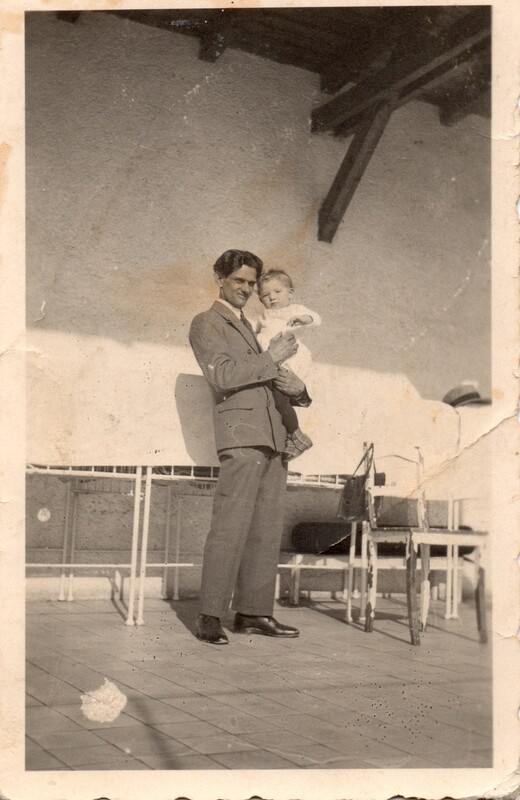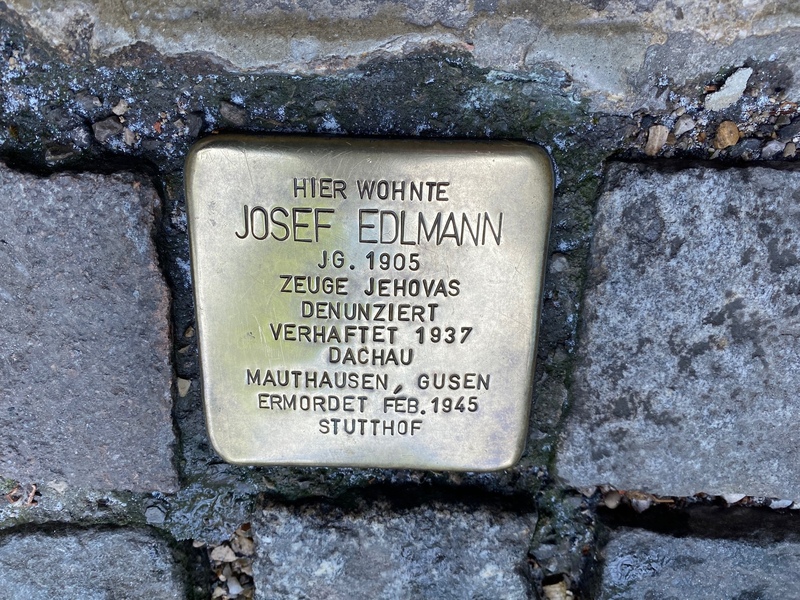Munich Stories Josef Edlmann
Lindwurmstraße 33, Rückgebäude, 80337 München
A “Stolperstein” at Lindwurmstraße 33 commemorates Josef Edlmann, a carpenter. Edlmann, who was a Jehovah’s Witness, was informed on and subsequently died in Stutthof concentration camp in northern Poland in 1945, having suffered torture in various camps for almost eight years. In his secret notes, Alfred Hübsch, a political prisoner interned in Dachau, describes Josef Edlmann’s courageous behaviour and his suffering in Dachau concentration camp.
A “Stolperstein” at Lindwurmstraße 33 commemorates the carpenter Josef Edlmann, who was informed on by a Munich city official. During a visit to a neighbour of the Edlmanns, the official noticed a Jehovah’s Witness Biblical brochure that Edlmann had given his neighbour. On 18 February 1937, Josef Edlmann was rudely awakened at 4.30 a.m. by the Gestapo and arrested. His four pre-school children never saw their father again. Frieda Edlmann, who was not a Jehovah’s Witness, refused despite pressure to divorce him.
Following his imprisonment, Edlmann was deported to Dachau concentration camp in the same year. Political prisoner Alfred Hübsch describes in the notes he kept secretly how Edlmann was ‘beaten, kicked and shoved’ because he refused to sing a soldier song. He was beaten repeatedly. Pressure was exerted on Jehovah’s Witnesses to sign a form, reject their teachings as a mistake and carry out military service. Doing so could have set Josef Edlmann free. But like most Jehovah’s Witnesses, he refused to sign a declaration of loyalty to the Nazi regime. Josef Edlmann was sent to Mauthausen concentration camp in 1939. After a total of eight years internment, he ultimately died in Stutthof concentration camp in 1945.
The religious community of Jehovah’s Witnesses was banned just a few months after the National Socialists came to power in Germany. The Protestant and Catholic Churches supported this move. Attacks against the Jehovah’s Witness belief system targeted the conscientious objection of its members, the preaching of the imminent demise ‘of the “Old World” and the powerful “politics, capital and the church” that supported it, the strong anti-clerical polemics of Bible scholars, the doctrine of racial equality and the “foreign influence” of the community from the USA.’ (Garbe 2018, 9) Jehovah’s Witnesses were barred from carrying out the missionary work crucial to the practice of their faith, and their writings were confiscated.
.





